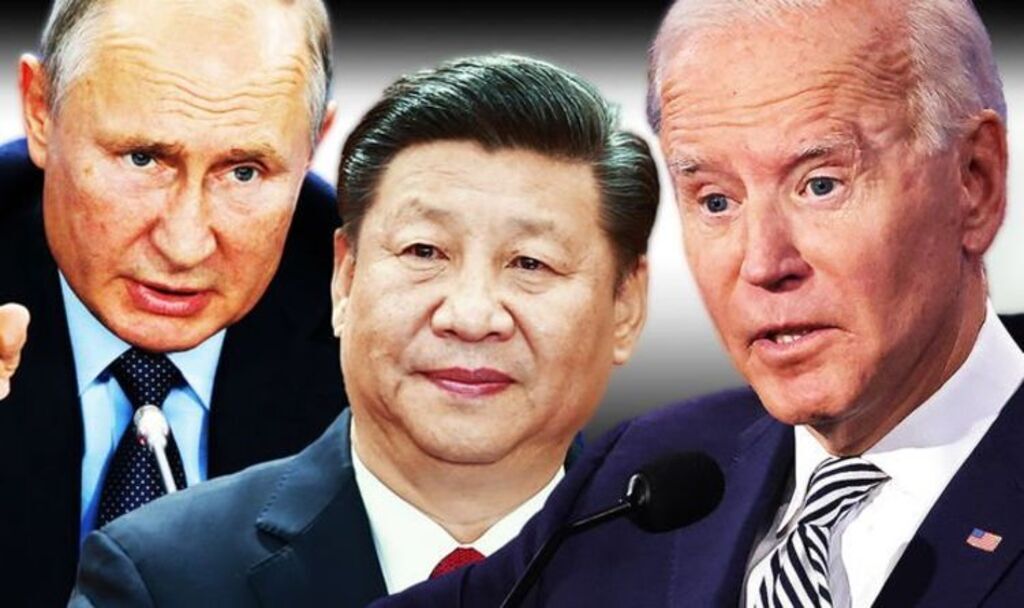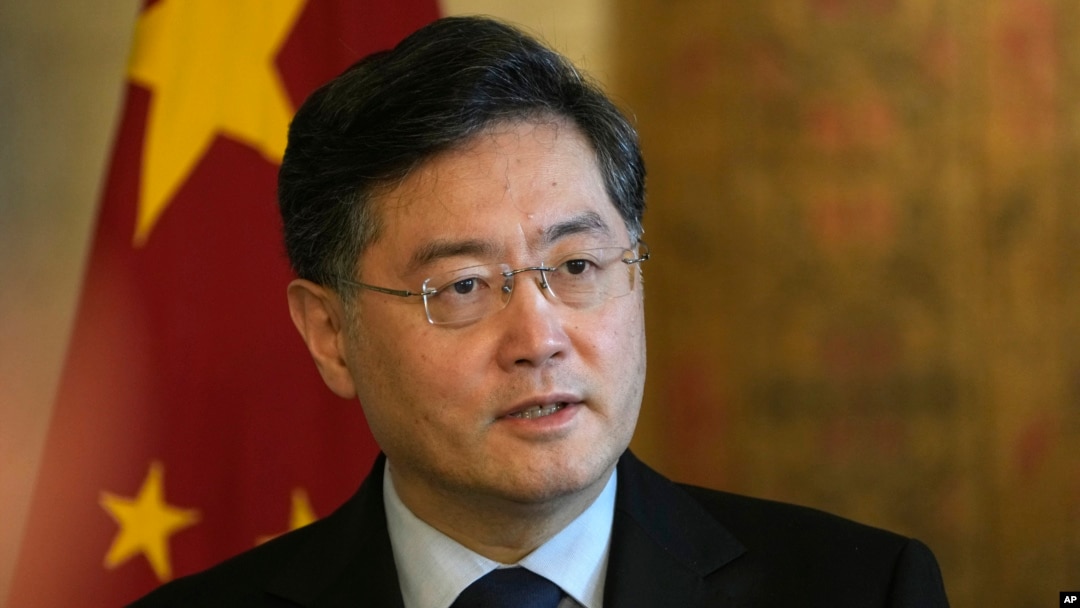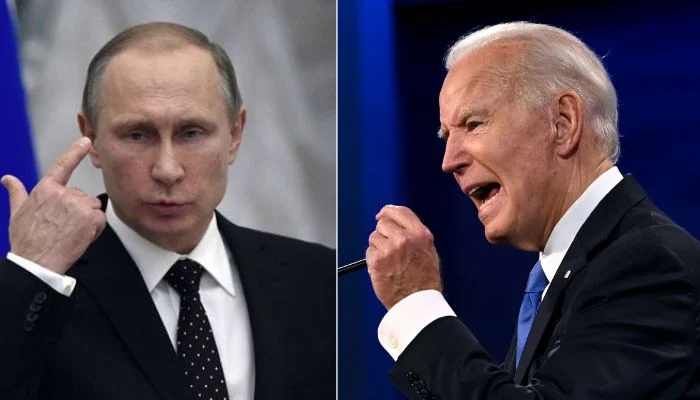News
China Push for Peace in Ukraine as Biden Screams War Crimes

China’s foreign policy appears to have entered a new phase following its long COVID lockdown and last year’s Communist Party leadership changes. While China has long sought to influence international affairs as an investor, trader, and development supporter, it has recently presented itself as a global leader capable of promoting global peace.
The recent agreement it mediated between Iran and Saudi Arabia is a prime example. Of course, it is portraying itself as a broker of peace in Ukraine, despite the fact that its proposal contains overtly pro-Russian elements that some regard as deceptive.
China’s President Xi Jinping plans to visit Moscow next week, providing a major diplomatic boost to Russian President Vladimir Putin on the same day the International Criminal Court announced its intention to charge the Russian leader with war crimes.
Xi’s visit was the latest sign of Beijing’s emboldened diplomatic ambitions, and it came amid rising East-West tensions over Ukraine’s 13-month-long war.
On Friday, the United States said it would oppose any attempt by China at the meeting to propose a cease-fire in Ukraine as “ratification of Russian conquest.”
White House National Security Council spokesman John Kirby urged Xi to contact Ukrainian President Volodymyr Zelenskyy to obtain his country’s perspective on the conflict and to avoid any “one-sided” proposals.
China has attempted to portray itself as neutral in the conflict, despite refusing to condemn Moscow’s aggression and declaring a “no-limits” friendship with Russia last year. Beijing has condemned Western sanctions against Moscow, accusing NATO and the US of inciting Putin’s military action.
Throughout the conflict, China has stated that all countries’ sovereignty and territorial integrity must be respected. However, it is unclear whether it sympathizes with Moscow’s claims to seized Ukrainian territory.
Putin issued an arrest warrant by the international court
Russian President Vladimir Putin has clearly committed war crimes, according to US President Joe Biden, and the International Criminal Court’s (ICC) decision to issue an arrest warrant for him is justified.
According to International Criminal Court President Piotr Hofmaski, the ICC has issued an arrest warrant for Russian President Vladimir Putin for war crimes in connection with his alleged involvement in the abduction of Ukrainian children.
Russian troops are still engaged in an attritional battle, this time in Ukraine’s eastern Donbas region.
Xi’s visit would be his first meeting with Putin since they met on the sidelines of a regional summit in Uzbekistan in September. Prior to that, Putin attended the opening ceremony of the 2022 Beijing Winter Olympics and met with Xi just before sending troops into Ukraine.
Dmitry Peskov, a Kremlin spokesman, told the Associated Press on Friday that Putin and Xi would meet over an informal dinner on Monday. On Tuesday, officials from both countries will hold broader talks on a variety of topics.
Yuri Ushakov, Putin’s foreign policy adviser, suggested that the talks could result in new approaches to the fighting in Ukraine. “I’m sure our leader and the Chinese leader will exchange assessments of the situation,” he said. “We’ll see what ideas come out of that.”
Kyiv does not simply want Russia to withdraw from areas it has occupied since its full-scale invasion in February 2022. Zelenskyy has demanded that Russia also withdraw from the Crimean peninsula, which Moscow annexed in 2014 in an illegal move condemned by the majority of the world.
But Putin has made it clear that he has no intention of giving up the Kremlin’s gains. Instead, he emphasized the importance of retaining Crimea on Friday.
“Obviously, security issues are the top priority for Crimea and Sevastopol right now,” he said, referring to the Crimean capital. “We will do everything possible to repel any threats.”
China Urging Ukraine Talks with Moscow
On Thursday, Chinese Foreign Minister Qin Gang wrote to his Ukrainian counterpart, Dmytro Kuleba, expressing concern about the war spiralling out of control and urging talks with Moscow on a political solution.
China has “always maintained an objective and fair stance on the Ukraine issue, has committed to promoting peace and advancing negotiations, and calls on the international community to create conditions for peace talks,” according to Qin.
Kuleba later tweeted that he and Qin “discussed the significance of the territorial integrity principle.” The main condition for peace, according to Ukraine, is Russia’s withdrawal from occupied areas.
“I emphasized the importance of (Zelenskyy’s) peace formula in ending the aggression and restoring just peace in Ukraine,” wrote Kuleba, who spoke with US Secretary of State Antony Blinken on the same day.
China called for a cease-fire and peace talks between Kiev and Moscow last month. Zelenskyy cautiously welcomed Beijing’s participation, but the overture appeared to end there.
According to Yurii Poita, head of the Asia section at the Kyiv-based New Geopolitics Research Network, the Ukrainian government is willing to accept China’s involvement because it is hesitant to make another powerful adversary.
“Do not antagonize the dragon when fighting a bear,” Poita advised The Associated Press.
Beijing’s apparent deeper involvement in Ukraine issues comes on the heels of its success last week in mediating talks between Iran and its main Middle Eastern rival, Saudi Arabia. After years of hostility, the two countries agreed to reestablish diplomatic relations.
The agreement places China in a position of leadership in Middle Eastern politics, a position previously held by long-standing global heavyweights such as the United States. As a result, Xi called for China to play a larger role in global affairs management.
 Biden has launched military and diplomatic operations against Putin
Biden has launched military and diplomatic operations against Putin
“A ceasefire now is, effectively, the ratification of Russian conquest,” Kirby told reporters on Friday. It would “effectively recognize Russia’s gains and its attempt to conquer its neighbor’s territory by force, allowing Russian troops to remain in sovereign Ukrainian territory.”
Russia could use the ceasefire to regroup “so that they can restart attacks on Ukraine at their leisure,” he warned.
A spokesman for Prime Minister Rishi Sunak said Britain would welcome any genuine Chinese effort to “restore Ukraine’s sovereignty.”
“Any peace agreement that does not include Ukraine’s sovereignty and self-determination is not a peace agreement at all,” Sunak’s spokesman Jamie Davies said.
According to Nataliia Butyrska, a Ukrainian political analyst, Beijing’s potential role as a peacemaker may be hampered by its stance on territorial integrity.
In Ukraine, “China does not clearly distinguish between who is the aggressor and who is the victim,” she told The Associated Press.
China has its own territorial issues, including Taiwan, which it claims as its own and intends to take control of by force if necessary.
The destruction of a US drone over the Black Sea on Tuesday after an encounter with Russian fighter jets heightened tensions between the two countries, prompting the first talks between their defence and military chiefs since October.
During a video conference call in late December, Putin invited Xi to visit Russia. According to Putin, the visit will “demonstrate to the entire world the strength of Russian-Chinese ties” and will “become the main political event of the year in bilateral relations.”
According to Wang Wenbin, a spokesperson for China’s Ministry of Foreign Affairs, Xi and Putin will discuss “bilateral relations and major international and regional issues of common concern.”
“With the accelerated evolution of changes of the century, the world is currently entering a new period of turbulence and reform,” he added.
“As permanent members of the United Nations Security Council and major powers, the significance and impact of China-Russia relations extend far beyond the bilateral sphere.”
The International Criminal Court in The Hague issued an arrest warrant accusing Putin of involvement in child abductions from Ukraine to Russia. It also issued a warrant for his children’s rights commissioner, Maria Alekseyevna Lvova-Belova.
The court lacks its own police force to enforce warrants, and the Kremlin has stated that it does not recognize the International Criminal Court’s jurisdiction.


 Biden has launched military and diplomatic operations against Putin
Biden has launched military and diplomatic operations against Putin



























